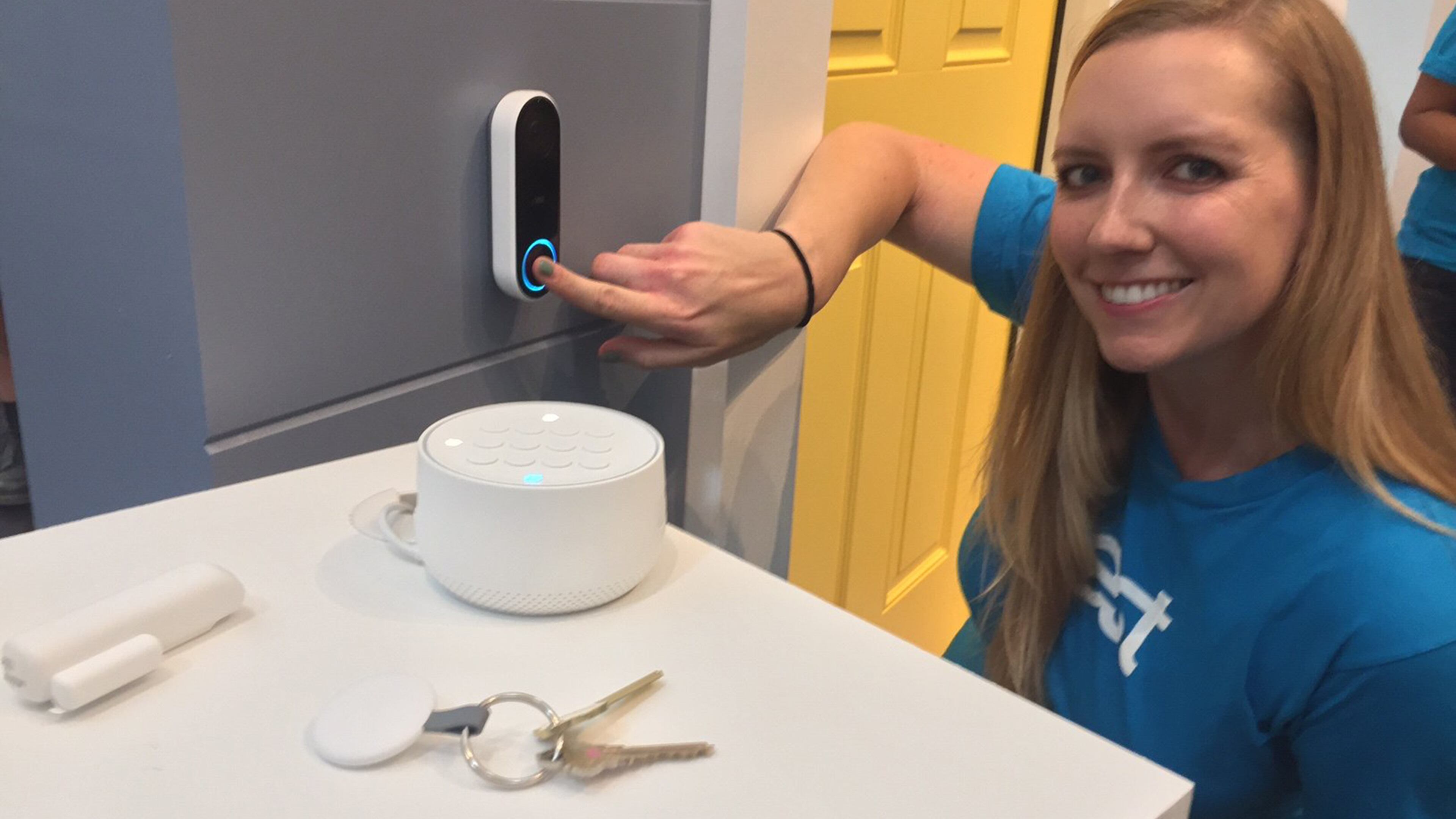Google’s Nest launches video doorbell and new security system

SAN FRANCISCO — Google’s Nest wants you to say goodbye to the front-door peep-hole and turn to “Nest Hello,” a new video doorbell the company unveiled recently.
Also new from Nest and announced at a San Francisco event were the “Nest Cam IQ Outdoor” security camera and the “Nest Secure” security system.
In expanding its offerings of internet-connected gadgets for the home, Nest is going beyond thermostats and smoke detectors to devices that can gather the data on individual consumers that powers Google’s primary business of targeted online advertising, analysts said.
The camera and security system can be pre-ordered and are to start shipping in November, while the doorbell will become available between January and March of next year, Nest said.
The Hello video doorbell was Nest customers’ “number one most-requested product,” said Michele Turner, Nest’s general manager of security products.
“This is the first video doorbell that can do both person-detection and facial recognition,” Turner said.
The facial-recognition function requires subscription to the company’s “Nest Aware” service for $10 to $30 a month.
The doorbell’s camera — which has night vision — can stream video to the user’s device and identify people known to the user. With its microphone and speaker, the device allows for “crystal clear” conversation between the user and a person at the door, Turner said.
The app also features “quick responses” that can be selected on a mobile device by tapping. For example, the device can tell a delivery person, “Just leave the package at the door.”
A potential porch pirate come to steal delivered packages also can be told to buzz off, Nest said.
No price has been released yet for the Hello doorbell.
To prevent intruders from gaining access to a home, Nest is now offering the Nest Secure system, consisting of the “Nest Guard” base unit plus “Nest Detect” sensors that monitor opening and closing of doors and windows.
Three-quarters of U.S. households don’t have security systems, and of those that do, 43 percent don’t turn them on, said Nest’s head of product marketing Maxime Veron.
“Can you think of an industry that would be better to disrupt?” Vernon said.
The new security system can be turned on and off via a fob called the “Nest Tag,” or by using a passcode. The app will provide reminders if the system determines that no one is likely at home but the alarm system is unarmed, Veron said.
The system can be integrated with Nest cameras, he said. If an intruder is detected, a loud siren sounds, and users can contact police through the app.
The base unit plus two sensors and two fobs sells for $499.
Get tech news in your inbox weekday mornings. Sign up for the free Good Morning Silicon Valley newsletter.
For an additional outer layer of security, Nest unveiled the Nest Cam IQ Outdoor security camera, with facial recognition by subscription.
“If you have a bad guy on your property, you want to make sure he doesn’t get into your house in the first place,” Turner said. “It can tell me from 50 feet away if there’s a stranger in my driveway or if it’s just my babysitter.”
The weather-resistant, $349 camera can zoom in on a person and track them, and it has a speaker that can be used via a smartphone, Turner said.
“If there is a bad guy outside my house, I’m going to open up the app and tell him to go away,” she said.
For the camera and the security system, additional services are available by subscription, such as continuous video recording on the camera, which allows users to screen stored video.
Those extra services, and the sale of new hardware, are part of Google’s monetization strategy for Nest, said Forrester Research analyst Julie Ask.
But, as with most of what Google sells and offers for free, user data is the prize, Ask said. Google gathers as much data on consumers’ behavior as possible to sell targeted advertising and to improve its services, and the new products let the company gather data from users in their homes, she said.
“They can reach us anywhere,” Ask said. “It just provides them more intelligence, more insights, more data.”


